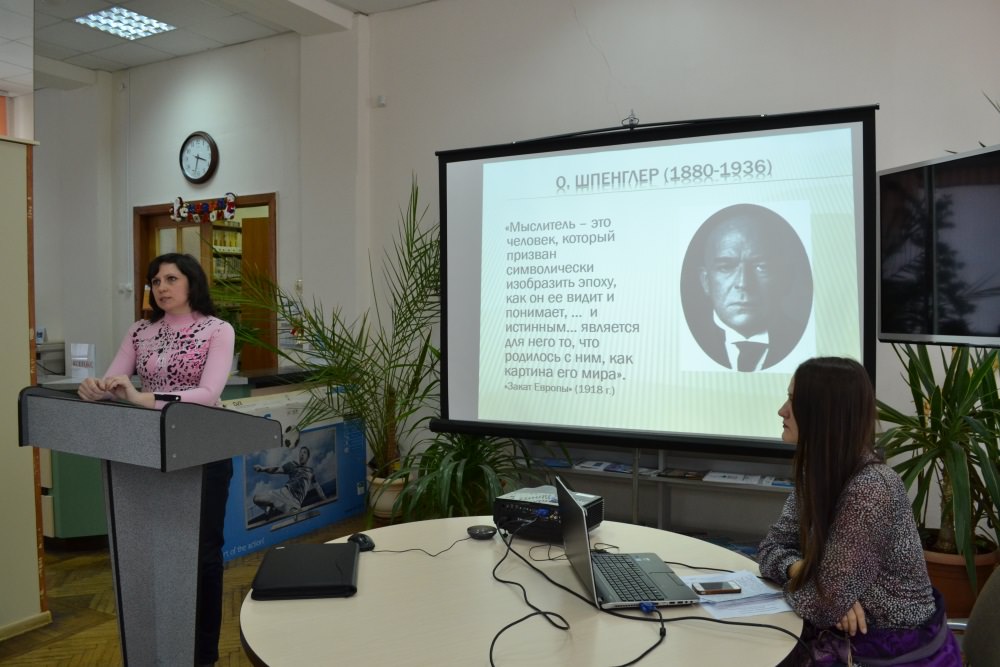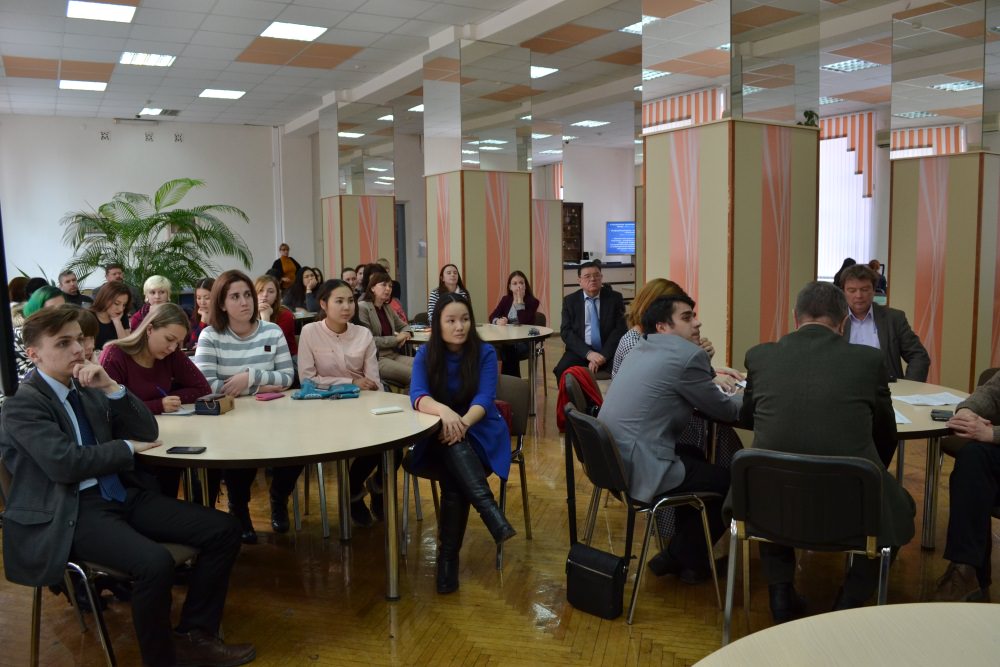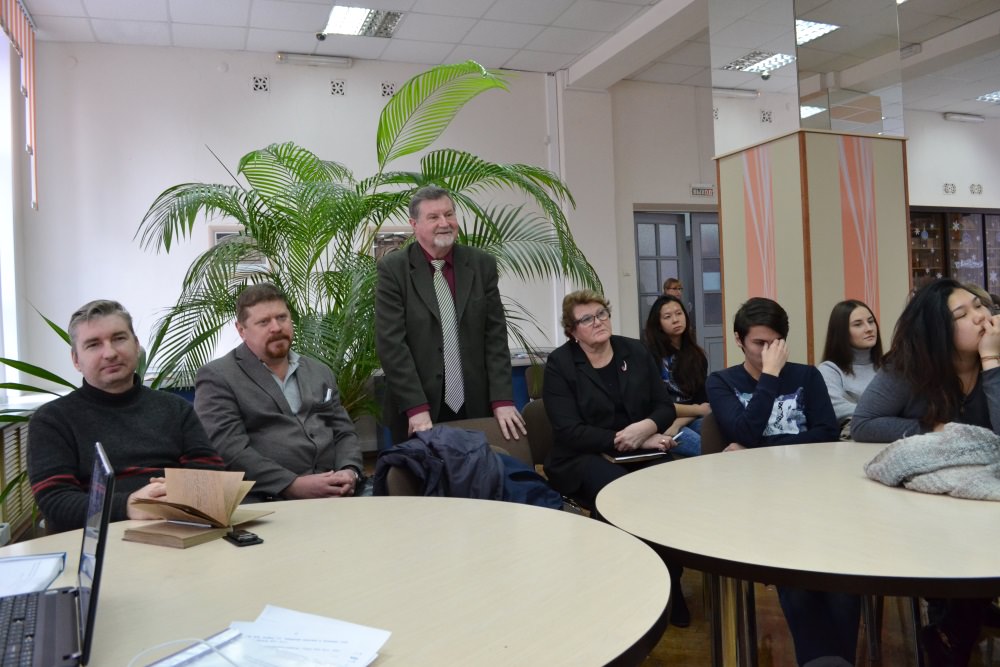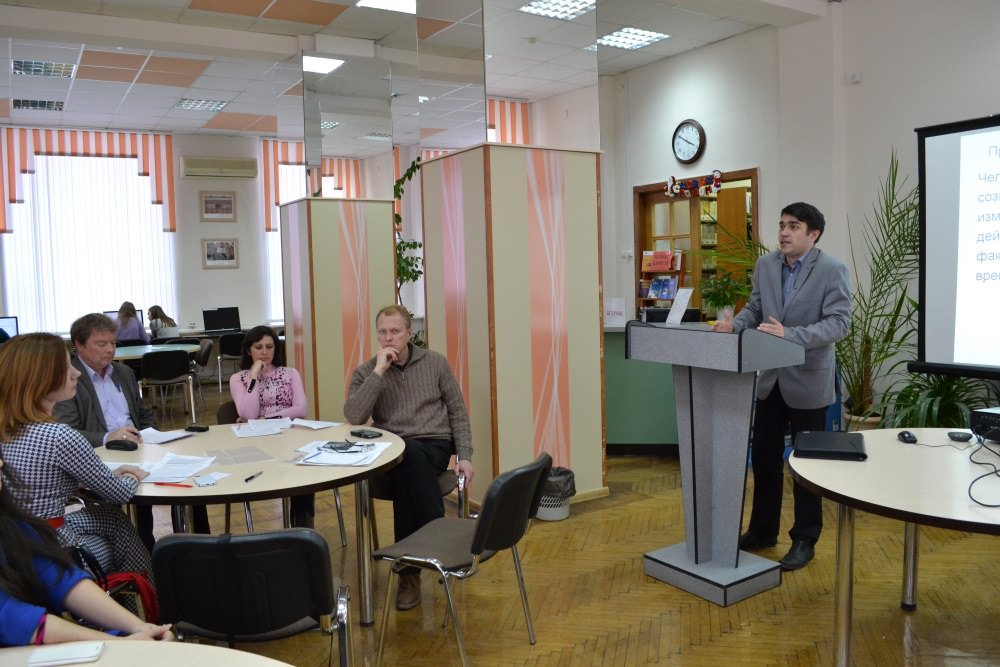Last Meeting of Philosophical Club in 2016
 23.12.2016
23.12.2016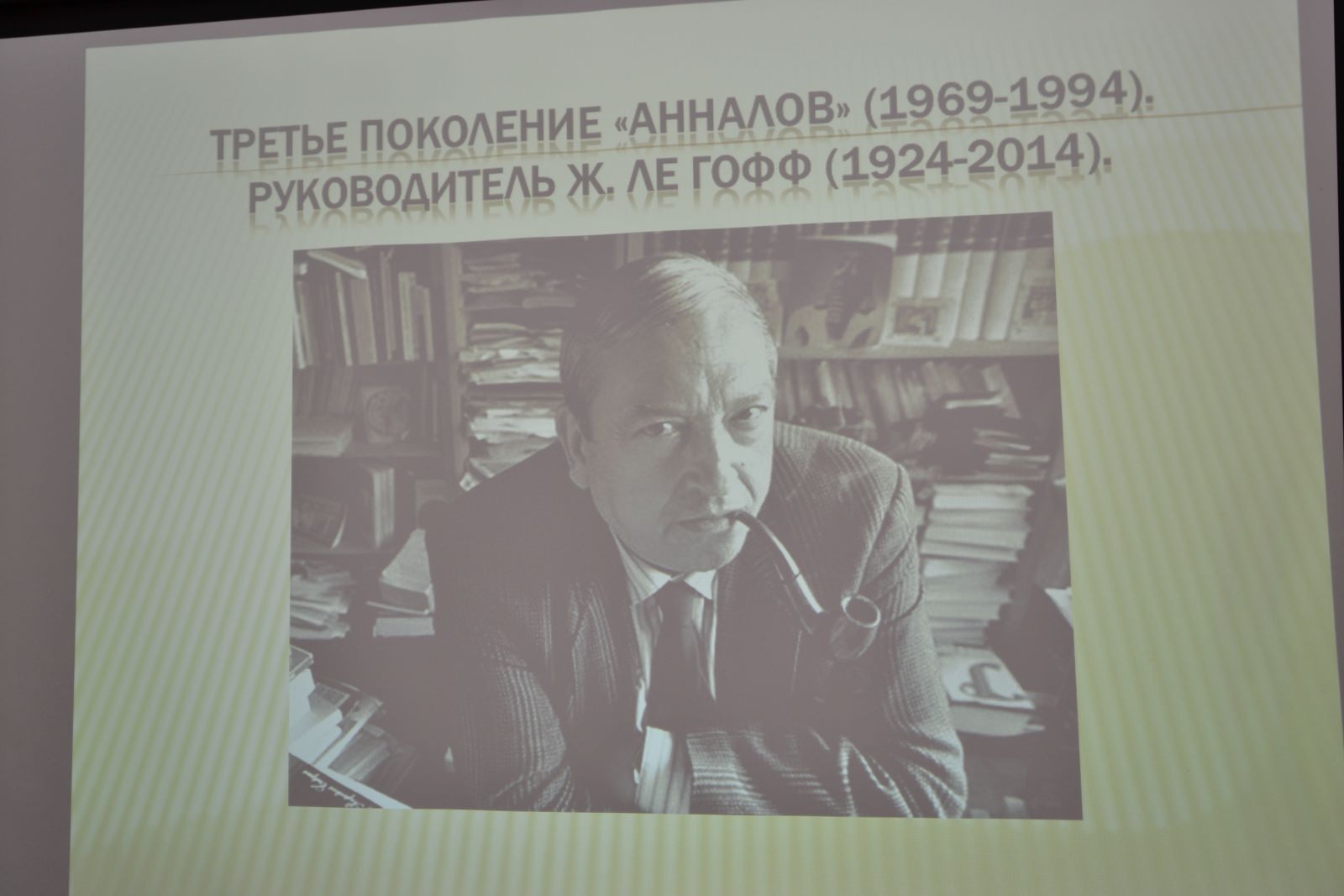
Another meeting of the Philosophical Club of Astrakhan State University has been held in the Reading Hall of our University’s Scientific Library. Its theme was “Philosophy of the Annales School: History Comprehension Non-Classical Paradigm”.
The meeting concerned the historical school that was named after its scholarly journal “Annales d'histoire économique et sociale” established in 1929 by Marc Bloch and Lucien Febvre. Since 1994, the name of this journal is “Annales. Histoire, Sciences Sociales”.
Opening the meeting, Prof. Lyudmila Baeva, Dean of the Department of Social Communications of ASU, gave a general characteristic of activities and significance of this historical school. She remarked that this school exerted a real impact upon the development of the entire historiography of the 20th century. The essence of the methodological revolution caused by the Annales School is that it challenged the conventional history and division of the total knowledge into two mutually exclusive epistemologies – the ideographical one (individualizing, i.e. applied to describe essential features on individual phenomena) and the nomothetic one (generalizing, i.e. applied to establish laws based on generalized events). History ought to be total and unparted, Prof. Baeva pointed out. It is typical for the Annales School to apply methods of Archaeology, Economics, Sociology, Geography, and other sciences in their research activities.
The speech by Dr. Valentina Tikhonova, an Associate Professor of our Chair of Studies & Researches in Culture, concerned approaches to studying history and culture in the scope of the new paradigm. She remarked that the Annales School based on the concept of a link between human thinking and social feelings, i.e. mentality that depends on a particular historical situation. The main object of medievalists’ research is a “live” feeling and thinking human being, which has caused an anthropological turnaround in the social and cultural knowledge.
Dr. Igor Vostrikov, an Associate Professor of our Chair of Philosophy, presented the concept by Marc Bloch, one of the cofounders of the Annales School. According to M. Bloch, comprehension of history requires revealing the essence of phenomena, understanding motives of humans who acted under conditions that they perceived in their individual way. The object of historical research is a human being throughout time; human conscience changes owing to the contemporary factors. Bloch’s main ideas were determination of the historic time from the viewpoint of phenomenology, the regressive method of researching the past, and determination of specific features of historical observation.
The book “Combats pour l’histoire” (1953) by Lucien Febvre was the object of research by Dr. Alexander Glazkov, Head of our Chair of Philosophy. He remarked that Lucien Febvre was interested in development of culture and mentality issues, in abilities of human conscience to perceive and develop the world, in critical thinking development, in revelation of conscience stereotypes, and in comprehension of the character of thinking (why people act in this specific way, and not in another way).
As for Fernand Braudel, Dr. Zoya Skolota, an Associate Professor of our Chair of Philosophy, named him “the artist of history”. She remarked that this thinker was deeply involved in dealing with such issues as the notion of long temporal duration (longue durée) – the flow of history is very slow (today it is as slow as it was yesterday), the issue of structurally possible and impossible in history, and the civilization refusal concept. Her characteristic of Braudel’s book “Civilisation matérielle, économie et capitalisme” was of special interest for the audience.
The elite-studies aspects of works by scholars of the Annales School were the main theme of the report by Dr. Pavel Karabushchenko, a Full Professor of our Chair of Political Science & International Relations.
The article by Jacques Revel “Le fardeau de la mémoire” (“The Burden of Memory”) was what Dr. Leonid Podvoyskiy, an Associate Professor of our Chair of Philosophy, concerned in his report. The speaker paid the audience’s attention to the three forms of memory reproduction mentioned by Jacques Revel: a tribute to memory; preservation of the historical heritage; the new regime of memory (the genre of memoirs, the tendency to be a historian for yourself, “the place of memory”). The speaker also tried to draw parallels between France and Russia within the aspect of memory preservation; he pointed out that memory may be personal, collective, and professional. In the end, Dr. Podvoyskiy recited the poem that sets the question “can we really forget what is sacred for us?”
Among the audience at the held meeting of our Philosophical Club, there were Prof. Alexander Lunev (our Acting Rector), Prof. Galina Stefanova (our First Vice Rector – Vice Rector for Main Activities), our faculty staff, and students specializing in Humanities.


